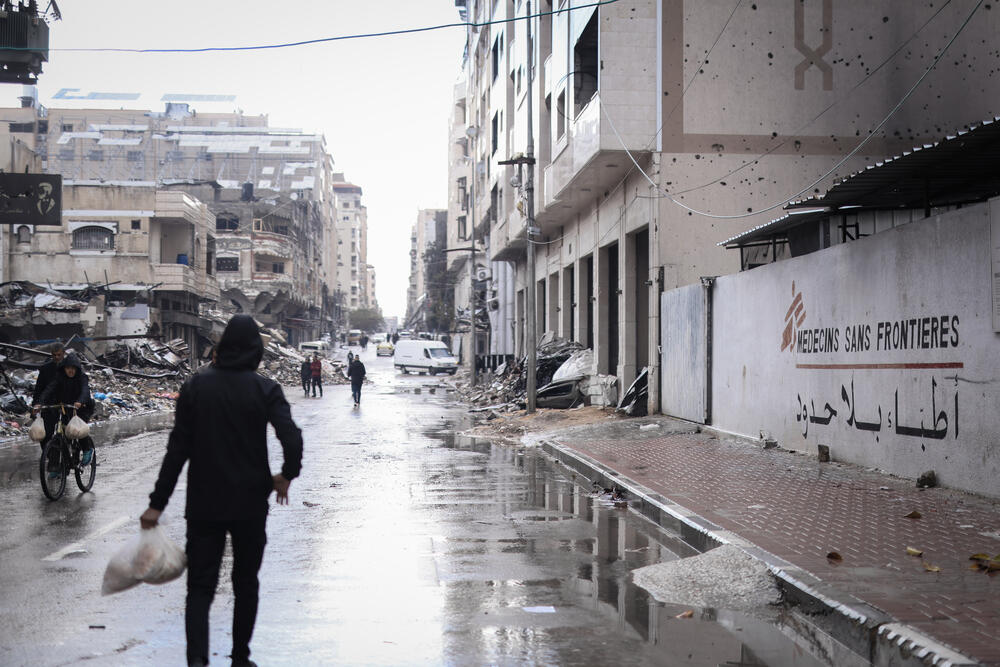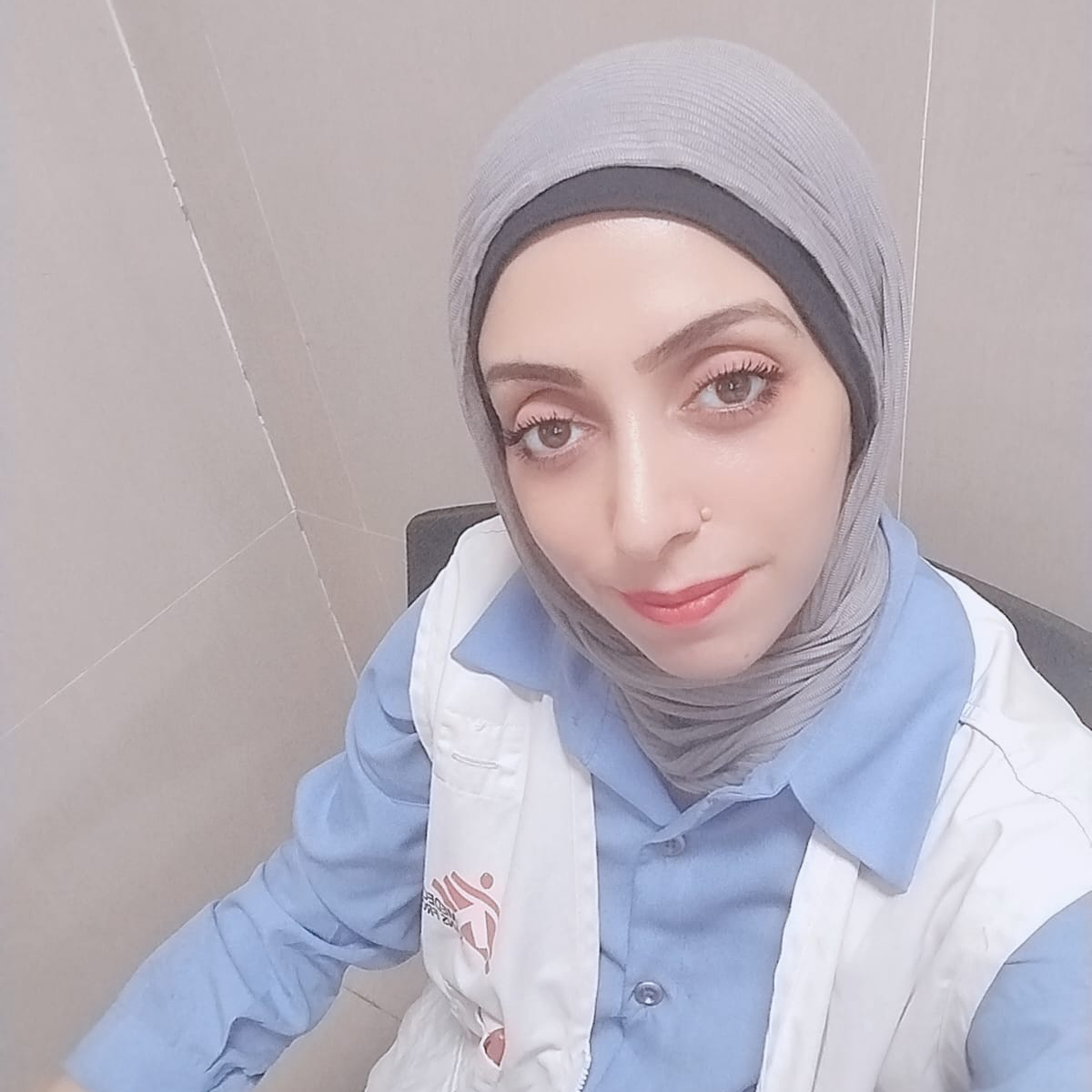What Israel's evacuation orders on Gaza City mean for Palestinians
Israeli forces have accelerated their genocidal campaign and ethnic cleansing by expanding their military activity into Gaza City. There are bombings day and night, and people are terrified. Many are staying in Gaza City simply because they have no other option.
Médecins Sans Frontières / Doctors Without Borders (MSF) teams continue care for people injured by Israeli airstrikes as well as for those suffering from malnutrition in our maternity and neonatal intensive care units. MSF health educator Lina Batniji shares her experience in the face of these latest evacuation orders.
“I don’t even know where to begin. We have women patients in red zones — areas that are classified as extremely dangerous. Some of them have C-sections scheduled for today, tomorrow, by the end of the week, and others later this month.
If any of these women are displaced and go into labour, they need surgery. Without access to a hospital, this could cost them their baby—or their life.
These women are living in terror. They know that no ambulance will come to the red zone to pick them up so they can deliver safely.
There’s no way for them to reach the hospital that still performs C-sections — though God only knows how much longer it will even be functioning.
And for those who ask why these women didn’t leave earlier, it's because they can’t even afford food, let alone fuel for transportation.
There are people in Gaza right now who cannot access food. We are suffering from systematic starvation. The food that is getting in is either unhealthy or too expensive — 95 percent of people cannot afford to buy it. Also, transport alone costs more than most people can afford.

Help us prepare for the next emergency
Heading into the unknown
I thought our suffering had ended when we returned to Gaza City during the ceasefire. We had accepted the war, accepted that it would return. But to be forced to leave Gaza City again? That has broken something in us.
We’re now collecting the fragments of our previous lives, the little we have left, hoping we’ll find a place to go—but even that hope is gone. Now, we are heading into the unknown, into nothingness, with only the things we could save from our destroyed homes. We are leaving with shattered bodies and broken souls.
We’re heading toward a past we cannot change, a present we cannot understand, and a future that is nowhere to be found. We are going to places in the south where there’s no one waiting for us, no space for us. We feel like a burden on this world. And honestly, death feels easier than this path of displacement. It’s no longer something we fear. We die a little more every day, and we still wake up in the morning pretending we can keep going.
I can’t even console my children anymore. I can’t reassure them. All we’re clinging to are illusions—that maybe there will be an agreement, maybe a ceasefire, maybe a solution. But all these negotiations are lies meant to drain us—to wear us down, to exhaust civilians until there’s nothing left.
Nowhere is safe
Our only wish is to be safe. Not even in real homes—we’re now in animal shelters, bird nests, whatever we can find. We’ve already let go of the idea of having our houses back. Just let us stay where we are. But they say: “Go to humanitarian zones.” So I ask—where are these zones?
We try to go to these so-called safe areas and find nothing. No space, no safety. Just overcrowding, disease, and filth.
“This displacement isn’t our first. But the first time, we believed we’d return. Now, I am leaving Gaza City knowing I will not come back.”
Where can we go as civilians? I am asking for a space with a bathroom. Is that too much? Is it a fantasy to ask for clean water, a bathroom, four walls to protect my children from bombs, heat, cold, and disease?
What are the humanitarian standards? Because if I’m living in a tent, next to raw sewage, how is that a humanitarian zone? Is this what the world now calls humanity?
And then there’s the deeper heartbreak. I wish I had the skill to compress a home into a suitcase. I wish someone had taught me how to fold dreams, memories, and entire lives into a bag. I wish I knew how to walk away from everything and treat it as just a memory.
This displacement isn’t our first. But the first time, we believed we’d return. Now, I am leaving Gaza City knowing I will not come back.
I am leaving this place I love, this sky I’ve known, this air that knows me. And I’m leaving as though I’ve thrown my soul into Gaza City, and only my body is walking away.
This feeling—this feeling is death. I don’t know what death truly is, but this… this is what it feels like.”
MSF and the Gaza genocide
We are witnessing Israel commit genocide in Gaza.
MSF teams have seen firsthand the campaign of ethnic cleansing of Palestinians being pursued by the Israeli military in Gaza. The UK Government is complicit in these atrocities.
Our staff have worked to treat the wounded and supply overwhelmed hospitals as indiscriminate attacks and a state of siege threaten millions of men, women and children.

